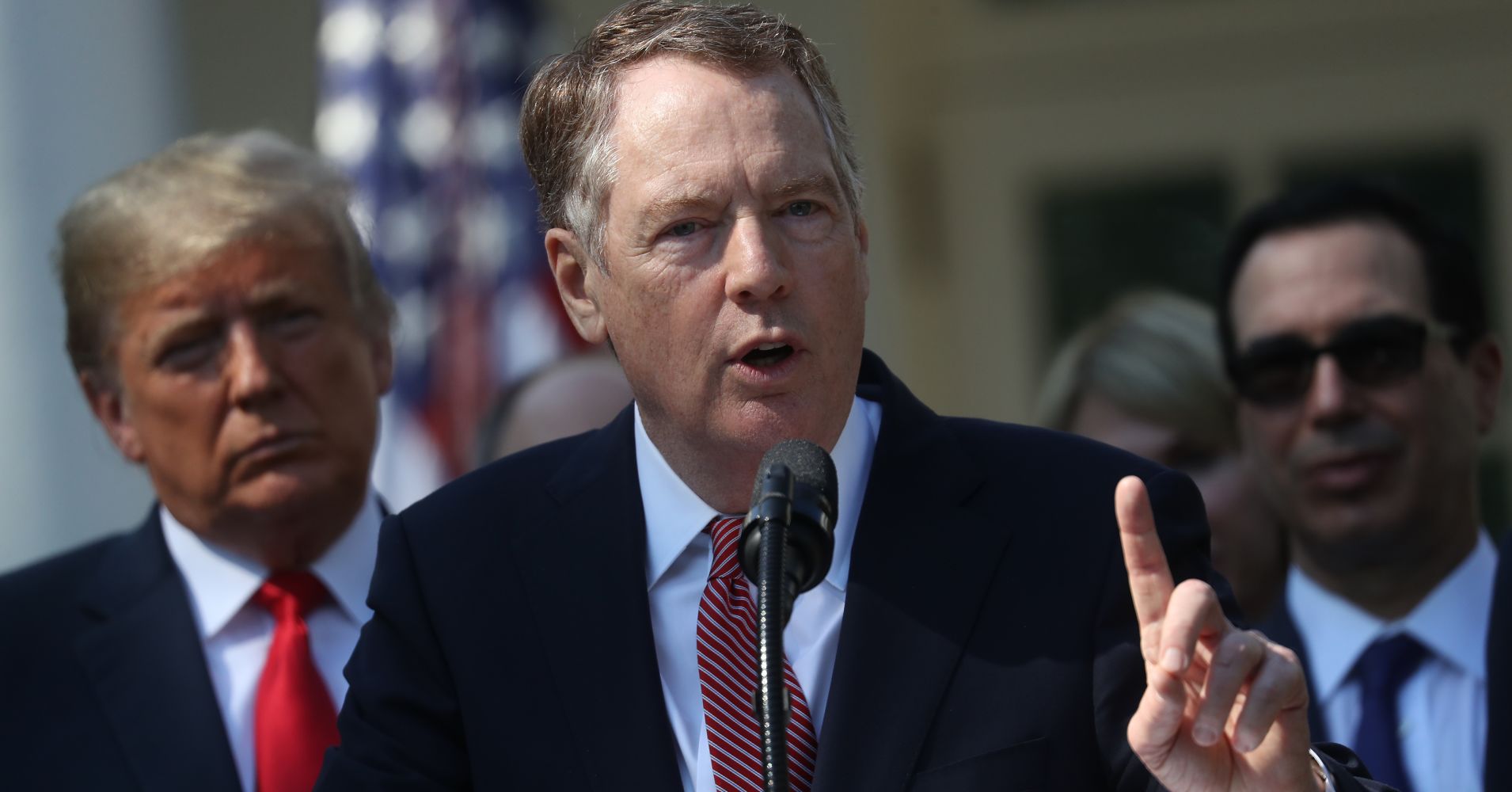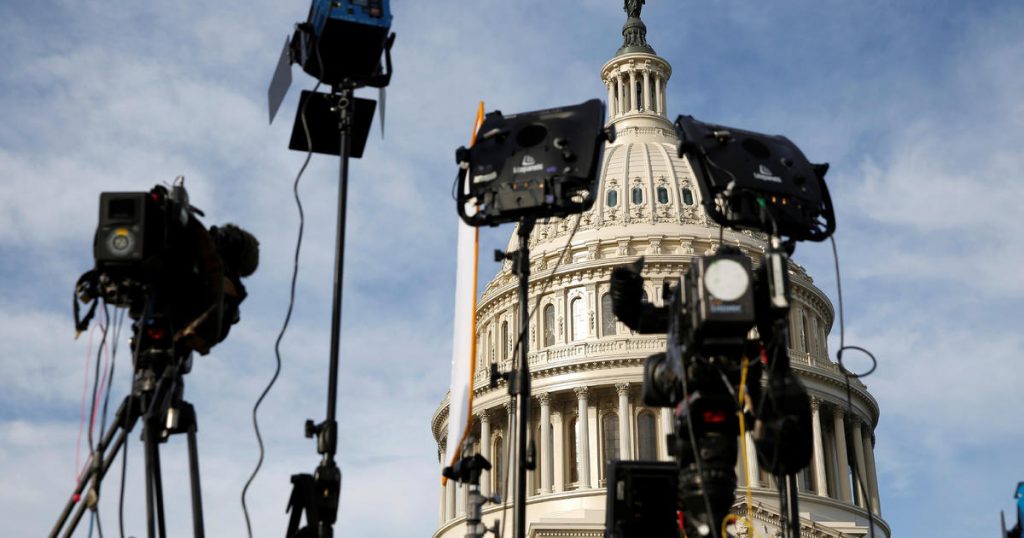
As the Trump administration sets out to strike a trade deal with China, confusion surrounds the role one of the president’s more hawkish advisors will play in the talks.
The prominence U.S. Trade Representative Robert Lighthizer has in the negotiations could help to determine whether the White House takes a more aggressive or conciliatory approach with China. A three-month window for the world’s two largest economies to strike a deal starts on Jan. 1. They agreed to a trade war truce on Saturday at the G-20 meeting in Argentina.
Lighthizer, a 71-year-old who joined the Trump administration after decades as an international trade lawyer, leads the agency charged with creating trade deals and resolving disputes. He headed arduous talks with Canadian and Mexican officials that led to a revised North American trade agreement. Lighthizer also backed the tariffs on Chinese imports that the White House deployed as it pushed Beijing to address alleged trade abuses.
Earlier Monday, confusion reigned as details about the meeting with Trump and Xi, and how any agreement would be managed, dribbled out. China had no such problem. Vice Premier Liu He has headed the talks on Beijing’s side during the Trump administration.
Trump’s Trade advisor Peter Navarro — a hardliner who advocates a harsh approach to trade policy with China — said Lighthizer would lead negotiations. But Treasury Secretary Steven Mnuchin and National Economic Council Director Larry Kudlow both quashed the idea of a nominal leader, instead casting the negotiations as a group effort led by President Donald Trump himself.
However, Kudlow said later Monday that Lighthizer would “take the lead on the negotiations and on the enforcement part” while Mnuchin handles currency manipulation and other topics.
Regardless of whether the trade representative heads the talks, the public contradictions over his role once again reflect the disparate elements of Trump’s economic team.
The more free trade wing in Mnuchin and Kudlow is often at odds with the protectionist elements represented by Lighthizer and Navarro.
While Trump appears conciliatory now, his outlook could change when the next round of talks plays out — and that could affect whether he decides to reignite the trade war with increased tariff rates or new duties.
Alleged Chinese theft of intellectual property, forced technology transfer in order to access markets and tariffs are among the top issues the U.S. wants to resolve in trade talks. The White House has paused a plan that would have raised a 10 percent tariff on $200 billion in Chinese imports to 25 percent on Jan. 1.
While the USTR has jurisdiction over creating trade deals, Chinese officials have largely interacted with Mnuchin during talks so far, according to The Wall Street Journal. The Chinese government would prefer to work with the Treasury secretary, who seems more keen to end the trade conflict that has raised the specter of economic damage and rattled financial markets, the newspaper reported.
In his role at USTR, Lighthizer has carried out the investigations that led to the tariffs imposed so far on $250 billion in Chinese goods. He has also outlined the administration’s justification for those duties.
“The Trump Administration continues to urge China to stop its unfair practices, open its market, and engage in true market competition,” the trade representative said in one statement in June as the world’s two largest economies escalated their trade conflict. “We have been very clear about the specific changes China should undertake. Regrettably, instead of changing its harmful behavior, China has illegally retaliated against U.S. workers, farmers, ranchers and businesses.”
In October, he accused China of “stealing our technology” and stressed the need for the U.S. to “protect our innovation” and keep an “edge.” Earlier Monday, Navarro told NPR that Lighthizer is “the toughest negotiator we’ve ever had at the USTR.”
“And he’s gonna go chapter and verse and get tariffs down, non-tariff barriers down, and end all these structural practices that prevent market access,” the trade advisor said.
Lighthizer “will be laser-like focused on getting concrete actions from the Chinese” and getting Beijing to address “the real structural concerns” the U.S. has decried, Meredith Sumpter, Eurasia Group head of research strategy and operations, told CNBC’s “Power Lunch.”
The USTR directed CNBC to the White House when asked to comment on whether Lighthizer and Mnuchin saw differences in how to treat China talks. The White House did not immediately respond to a request to comment.
Lighthizer has certainly shown himself to be more harsh on China than some of his counterparts. But the views of Trump’s individual advisors may not ultimately drive his thinking, said David Dollar, a senior fellow at the Brookings Institution who worked as a Treasury Department policy emissary to China during the Obama administration.
Instead, Trump may gravitate toward certain advisors based on what he sees as politically and economically best at any given moment. When he views being “tough” on China as the best course, he could warm to the “hawks” such as Lighthizer and Navarro, Dollar said. If having a deal to promote seems like a better option, Trump could turn to the more conciliatory advisors such as Mnuchin and Kudlow.
As Trump’s Republican Party lost about 40 U.S. House seats in last month’s midterms and the president himself faces re-election in 2020, “logic dictates” that Trump could be more willing to compromise, Dollar added.
— CNBC’s Michelle Fox contributed to this report

